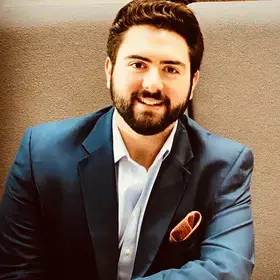Before earning her M.S. in Negotiation and Conflict Resolution, Kathy Goodman honed her mediation skills as an art dealer who negotiated deals between buyers and sellers. On the side, she had been working with various nonprofits on issues that pertained to the inner city. Though she always had an appreciation for conflict resolution work, she tried to avoid it: "My father was a well-known mediator, arbitrator, and negotiator. He taught these subjects at UCLA. I respected the work he did and found it interesting but had steered clear of it because I also saw it as highly stressful." When the conflict around the so-called Ground Zero mosque arose, she saw this intolerance as a call to action. She promptly enrolled in Columbia to study Negotiation and Conflict Resolution. Here, we speak with her about her fascination with faith, the theories that invigorated her mind, and the new conflict resolution venture on which she's embarking.
Why did you want to study Negotiation and Conflict Resolution (NECR)?
The conflict that developed around the so-called Ground Zero mosque inspired me to return to school to study conflict resolution. I have always been drawn to cross-cultural conflicts; identity issues, culturally defined conflict orientations, and the power of the collective memory in conflict—I'm fascinated by all of this. I went back to school to learn more.
What was your experience in the program like?
I started with a cross-cultural focus and a dream of getting Mayor Bloomberg interested in creating an interfaith district in lower Manhattan. My vision was to have an entire block with all the religions represented, devoted to worship and to interfaith dialogue. In addition to individual places of worship, a communal building could house an auditorium for performing arts. There would also be classrooms for school children to experience diverse religious practices and study tolerance. The complex would have a library of religious texts and study cubicles for visiting scholars. And there would be offices for conflict resolution.
As the coursework unfolded, it was the centrality of emotions in conflict that dominated my attention: how emotions are formed and deformed and how they could be engaged in conflict as an opportunity for growth. I began to explore cognitive dissonance theory, cognitive appraisal theory, psychological barriers theory, human needs lists, social construction theory, cooperation/competition theory, and relational theory. My head was swimming with new ideas.
I developed a singular interest in teaching mediators how to engage their own emotions during mediation as a path towards better management of the process. Now that I have graduated, I have pursued this and am currently creating a training module with the New York Peace Institute.
You are embarking on a new business venture with another alumni of NECR. Can you tell us about that?
NECR alumna Karen LaRose and I discovered early on that we approached tasks very differently. Through assessments taken at Columbia: EQ-i 2.0, MBTI, and the NBI (Neethling Brain Instrument), we found that our skills, EQ competencies, and thinking preferences were complementary. Honoring a collaborative process, we brainstormed how to combine our strengths to create a business.
We collaborated with other NECR students: Chris Straw, Nikolas Katsimpras, Carla Mezic, Sandra Harris, and Saad Saad. We all worked together to understand how we could team up and offer well-informed conflict resolution in a variety of contexts. Mutual respect, good listening skills, and reflection all came into play. Karen and I blend creativity and reality checking. Together, we comprise what's called a whole brain team. I think we deeply value our cohort and that we all listen carefully to each other. But we're still a work in progress.
If you could give one piece of advice to someone who is thinking about a career change, what would it be?
Get very quiet. Ask three questions: What does the world need? What might I be good at? What would fully engage my attention on a daily basis? Look for the silver thread that connects your life—the things that have always caught your interest and brought fulfillment. Move towards those things wholeheartedly and fearlessly. Trust.


